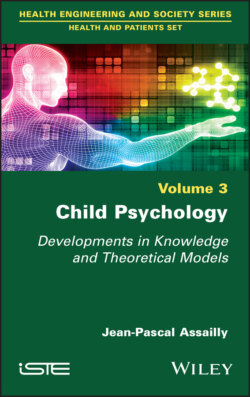Читать книгу Child Psychology - Jean-Pascal Assailly - Страница 56
1.13. Ranking among siblings
ОглавлениеThe first psychologist to study the influence of sibling rank was a psychoanalyst, Adler, who placed the feeling of inferiority at the heart of the creation of neurosis. He believed that sibling rivalry and the dominance of the eldest sibling are at the root of psychological differences between siblings. Freud, on the other hand, attributed little importance to sibling rank, as he gave much more importance to the emotional relationship with the parents. It must also be said that Adler lived at a time when the eldest sibling was indeed very much favored, particularly with regard to inheritance, so that there was no indivision.
These privileges have disappeared today. On the other hand, what has not changed is the role of “opener”, to borrow a mountain metaphor, played by the eldest child and the task of inclusion into an already formed relational universe that falls to the youngest child. Sibling rank is therefore the variable that comes most naturally to mind when we think of the evolution of the structure and that of the non-shared family environment: the eldest is first alone, then has to “make way” for the youngest, the parents have more experience and so on.
It has long been assumed that first-borns were first spoiled and then “dethroned”, which would constitute a form of trauma. In order to overcome this trauma, they would reinforce the imitation of their parents and the feeling of responsibility towards the younger children. They would thus put more emphasis on rule, discipline and become more conservative. First-borns who do not overcome this battle for the “lost love” of the mother become angry or resigned.
For a long time, a different hypothesis was also assumed, that for first-borns, parents are inexperienced and are more anxious and more demanding in their parenting behavior. This would make the older children more fearful and more dependent (and possibly therefore more dependent on psychoactive substances?). The younger children would be more open, more independent and more rebellious, and the older ones would be more conformist, more ambitious, etc. The feelings of an only child would be closer to those of an older child than a younger one.
However, what do 50 years of research on sibling rank show? Well, they show that there is no correlation between sibling rank and personality, in particular, that we do not find the above associations with openness of mind. In fact, the results of the studies go in all directions, and analysts have not been lacking in imagination when explaining completely opposite results, based on the use of popular theories about the effects of rank, when it suits the reasoning.
Associations with the subject’s personality traits are only found in descriptions by parents or siblings. In fact, the influence of sibling rank would only be subjective: the way others see you, the way you behave at home because “an older child is supposed to behave like this or like that”, but in no case does this translate objectively into measurements when taking personality tests.
